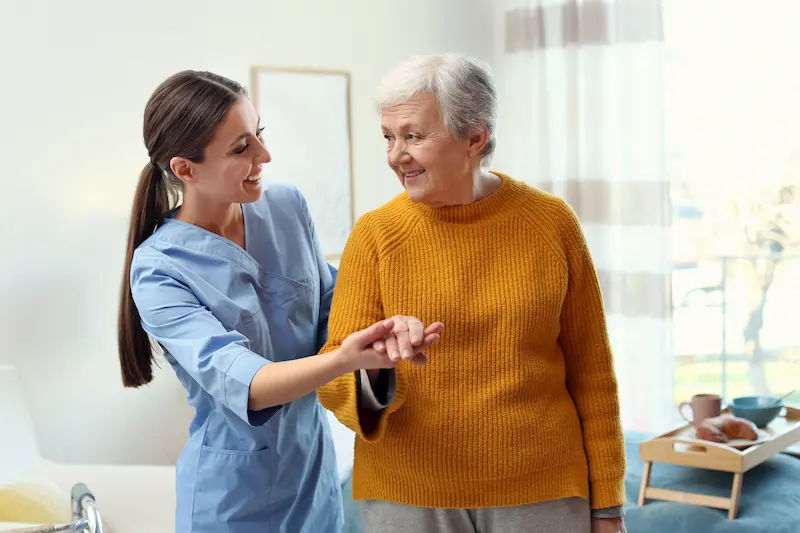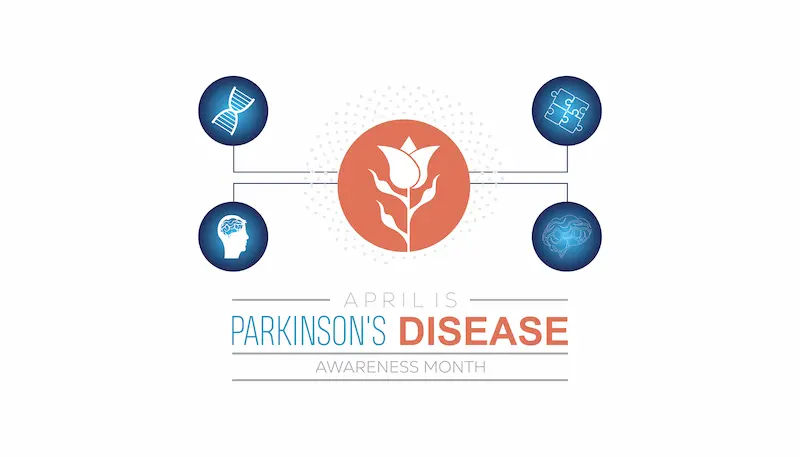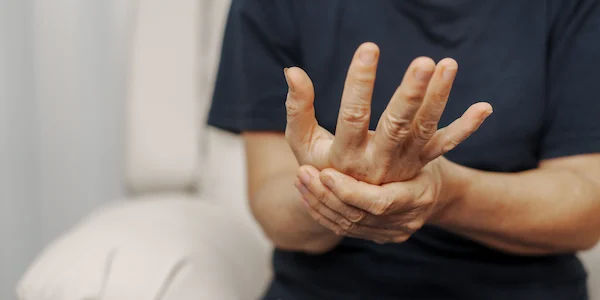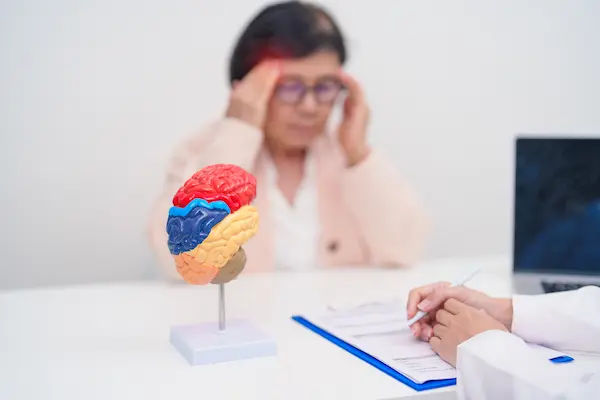Parkinson's Disease Symptoms Overview
Know about the Parkinson's disease causes, symptoms, diagnosis, treatment options and how to manage the disease condition.

Written by Dr. Dhankecha Mayank Dineshbhai
Reviewed by Dr. M L Ezhilarasan MBBS
Last updated on 13th Jan, 2026

Introduction
Parkinson’s Disease (PD) is a progressive neurological disorder that affects movement and can cause a range of other symptoms. While it is more common in older adults, early-onset Parkinson’s can also occur. Recognizing the symptoms early can help in managing the condition better and improving quality of life.
This article will walk you through the common symptoms of Parkinson’s, how they affect daily life, and what you can do to manage them.
Consult Top Neurologist for Personalised Advice
What Are the Main Symptoms of Parkinson’s Disease?
Parkinson’s symptoms develop gradually and vary from person to person. The key symptoms are related to movement, but non-movement symptoms can also appear.
1. Motor (Movement-Related) Symptoms
a. Tremors (Shaking)
- What it feels like: Rhythmic shaking, usually starting in the hands or fingers (often called a "pill-rolling tremor").
- When it happens: Often at rest and may decrease when moving.
b. Bradykinesia (Slowed Movement)
- What it feels like: Movements become slower, making simple tasks like buttoning a shirt or walking difficult.
- Impact: Can lead to a shuffling walk and reduced facial expressions (called "masked face").
c. Muscle Stiffness (Rigidity)
- What it feels like: Stiffness in arms, legs, or neck, making movement painful or limited.
- Impact: Can cause muscle aches and difficulty turning or balancing.
d. Postural Instability (Balance Problems)
- What it feels like: Difficulty maintaining balance, leading to frequent falls.
- Impact: Increases the risk of injuries and makes walking unsteady.
2. Non-Motor Symptoms
Parkinson’s doesn’t just affect movement—it can also cause other health issues:
a. Sleep Problems
- Trouble falling or staying asleep.
- REM sleep behavior disorder (acting out dreams).
b. Mood Changes
- Depression, anxiety, or irritability.
c. Cognitive Changes
- Memory difficulties, slowed thinking, or confusion (in later stages).
d. Autonomic Dysfunction
- Constipation, low blood pressure (dizziness when standing), excessive sweating, or bladder problems.
e. Speech & Swallowing Issues
- Soft, slurred, or monotone speech.
- Difficulty swallowing, leading to choking or drooling.
How Do These Symptoms Affect Daily Life?
Parkinson’s symptoms can make routine activities challenging:
- Walking & Mobility: Slower movements and balance issues increase fall risks.
- Eating & Drinking: Swallowing difficulties may lead to malnutrition.
- Communication: Soft speech makes conversations harder.
- Mental Health: Depression and anxiety can affect overall well-being.
However, early diagnosis and proper management can help maintain independence for longer.
What Causes Parkinson’s Symptoms?
Parkinson’s occurs when brain cells that produce dopamine (a chemical that controls movement) start to die. The exact cause is unknown, but factors may include:
- Genetics (rare, but some families have a history).
- Environmental triggers (exposure to toxins like pesticides).
- Age (most cases occur after 60).
Tips for Managing Parkinson’s Symptoms
While there’s no cure, lifestyle changes and treatments can help manage symptoms:
1. Medical Treatments
- Medications (like Levodopa) to boost dopamine levels.
- Physical therapy to improve mobility and balance.
- Deep Brain Stimulation (DBS) for advanced cases.
2. Lifestyle Adjustments
- Exercise regularly – Walking, yoga, or tai chi can improve flexibility and balance.
- Eat a balanced diet – High-fiber foods help with constipation; protein timing may affect medication absorption.
- Speech therapy – Helps with voice control and swallowing.
- Mental health support – Counseling or support groups can ease emotional struggles.
3. Home Safety Tips
- Use handrails and non-slip mats to prevent falls.
- Wear comfortable, supportive shoes.
- Keep frequently used items within easy reach.
When Should You See a Doctor?
If you or a loved one experience:
- Persistent tremors
- Unexplained stiffness or slowness
- Frequent falls or balance issues
- Changes in speech or mood
Final Thoughts
Parkinson’s Disease affects each person differently, but understanding the symptoms can help in early detection and management. With the right treatment and lifestyle changes, many people with Parkinson’s continue to lead fulfilling lives.
If you suspect Parkinson’s symptoms, don’t hesitate to seek medical advice. Support is available, and early intervention makes a big difference.
Consult Top Neurologist for Personalised Advice
Consult Top Neurologist for Personalised Advice

Dr. Avinash Goswami
Neurologist
11 Years • MBBS, DNB (Medicine), Dr.NB (Neurology), MNAMS
Delhi
Apollo Hospitals Indraprastha, Delhi
Dr. Aleti Venkat Reddy
Neurologist
14 Years • MBBS, MD (GEN MEDICINE), DM NEUROLOGY, FEAN
Secunderabad
Apollo Hospitals Secunderabad, Secunderabad

Dr. Aditendraditya Singh Bhati
Neurosurgeon
21 Years • MBBS(2004), DNB Neurosurgery(2014); MNAMS; Fellow Skull Base Endoscopy (Italy), Fellow Extended Skull Base ( Weill Cornell, USA), Fellow ZAP-X Radiosurgery. Member of American Association of Neurological Surgeons
Delhi
Apollo Hospitals Indraprastha, Delhi
(125+ Patients)

Dr. Uddalak Chakraborty
Neurologist
8 Years • MBBS, MD(GENL.MED.),DM(NEUROLOGY)
Kolkata
MCR SUPER SPECIALITY POLY CLINIC & PATHOLOGY, Kolkata

Dr Nilesh Bhandari
Neurologist
10 Years • MD (MED), DNB (NEURO)
Pune
Apollo Clinic, Aundh, Pune
Consult Top Neurologist for Personalised Advice

Dr. Avinash Goswami
Neurologist
11 Years • MBBS, DNB (Medicine), Dr.NB (Neurology), MNAMS
Delhi
Apollo Hospitals Indraprastha, Delhi
Dr. Aleti Venkat Reddy
Neurologist
14 Years • MBBS, MD (GEN MEDICINE), DM NEUROLOGY, FEAN
Secunderabad
Apollo Hospitals Secunderabad, Secunderabad

Dr. Aditendraditya Singh Bhati
Neurosurgeon
21 Years • MBBS(2004), DNB Neurosurgery(2014); MNAMS; Fellow Skull Base Endoscopy (Italy), Fellow Extended Skull Base ( Weill Cornell, USA), Fellow ZAP-X Radiosurgery. Member of American Association of Neurological Surgeons
Delhi
Apollo Hospitals Indraprastha, Delhi
(125+ Patients)

Dr. Uddalak Chakraborty
Neurologist
8 Years • MBBS, MD(GENL.MED.),DM(NEUROLOGY)
Kolkata
MCR SUPER SPECIALITY POLY CLINIC & PATHOLOGY, Kolkata

Dr Nilesh Bhandari
Neurologist
10 Years • MD (MED), DNB (NEURO)
Pune
Apollo Clinic, Aundh, Pune




